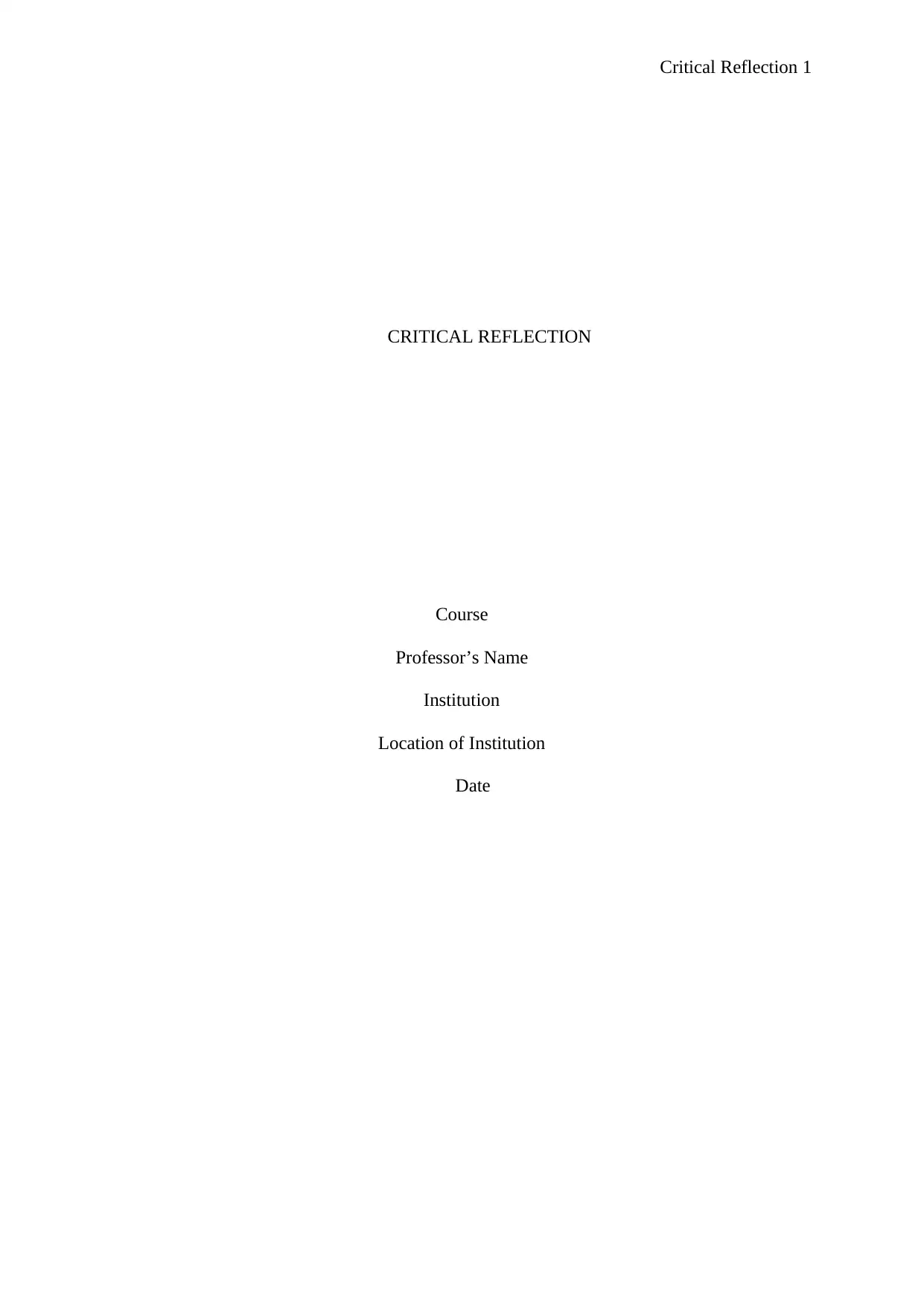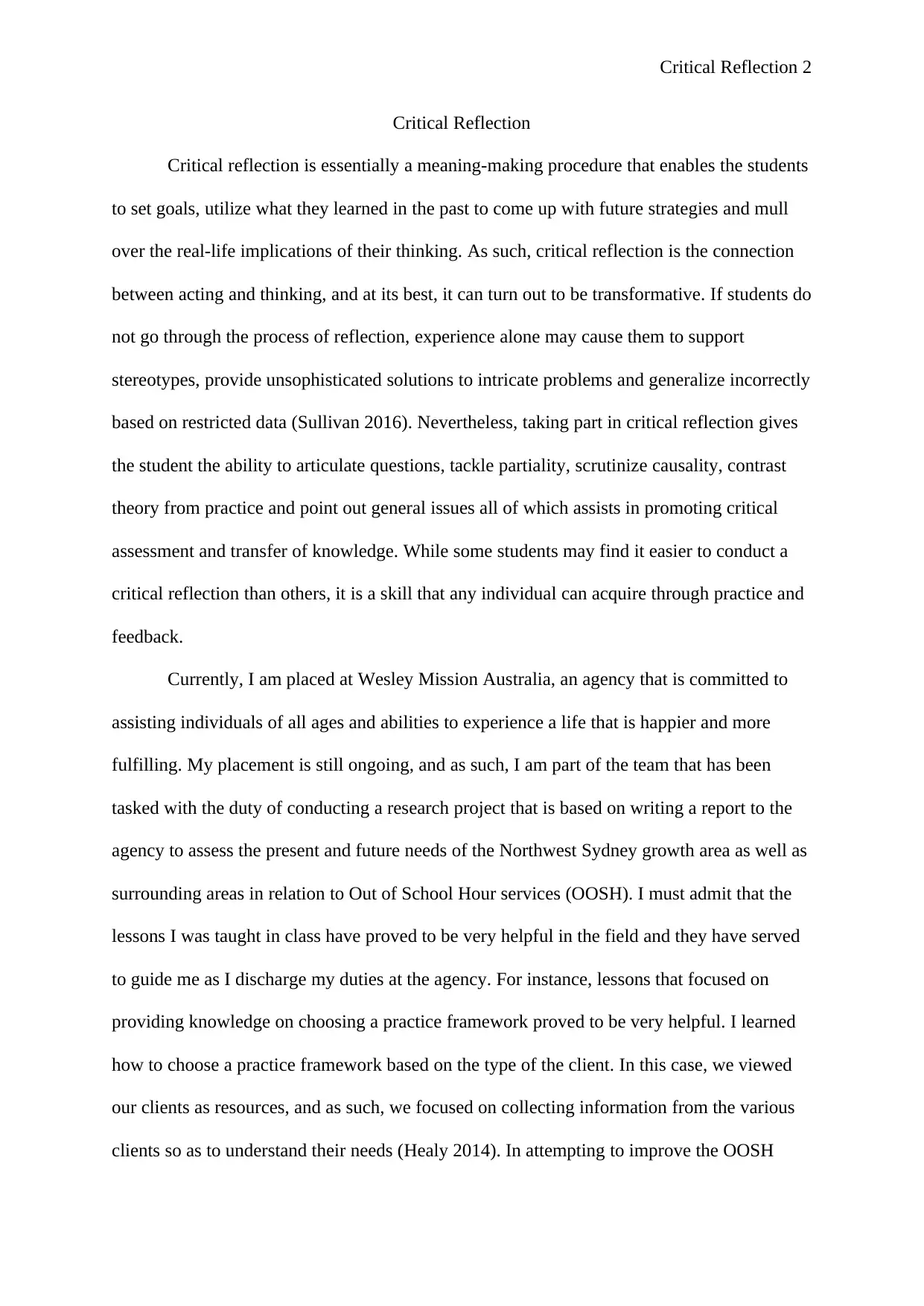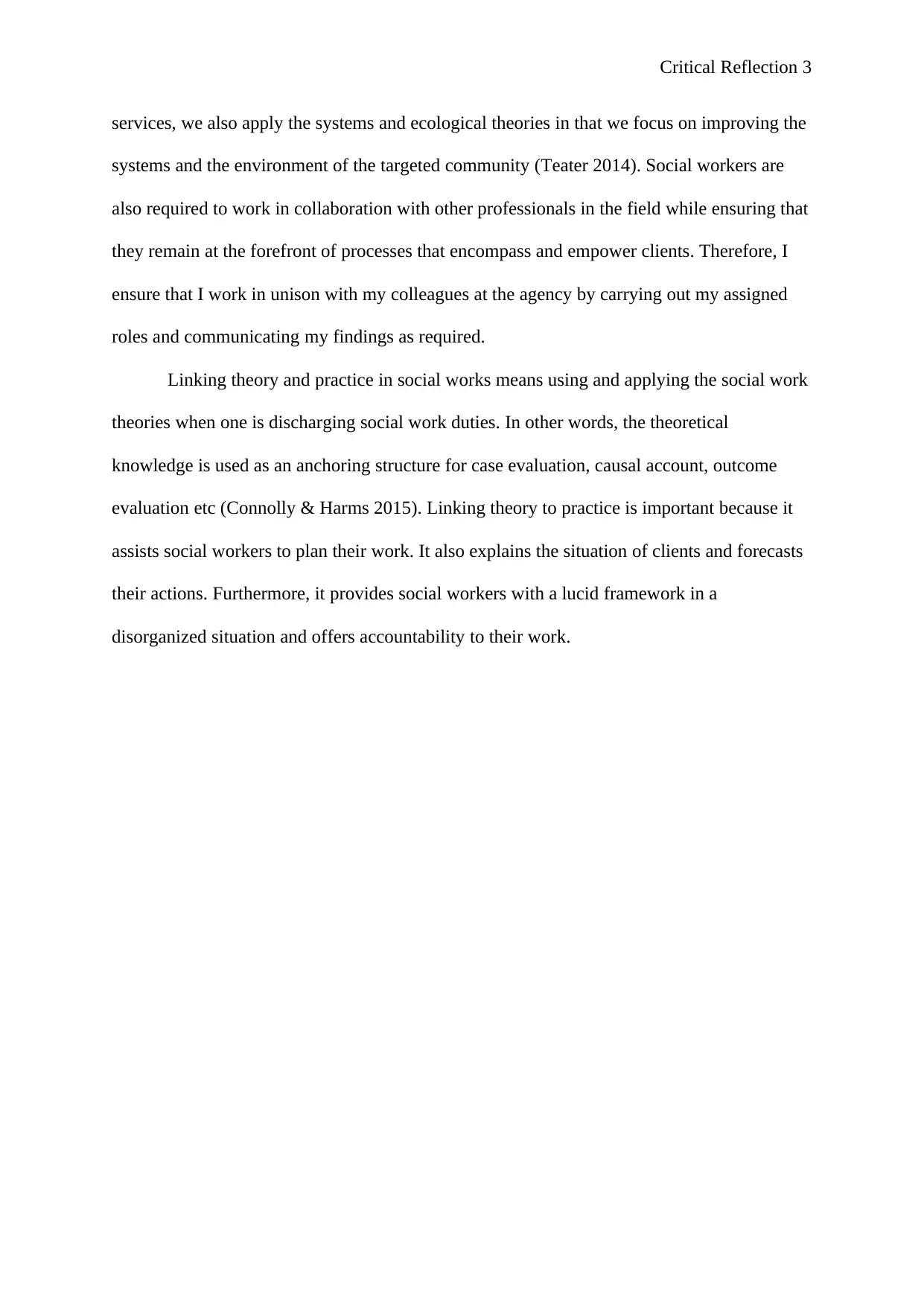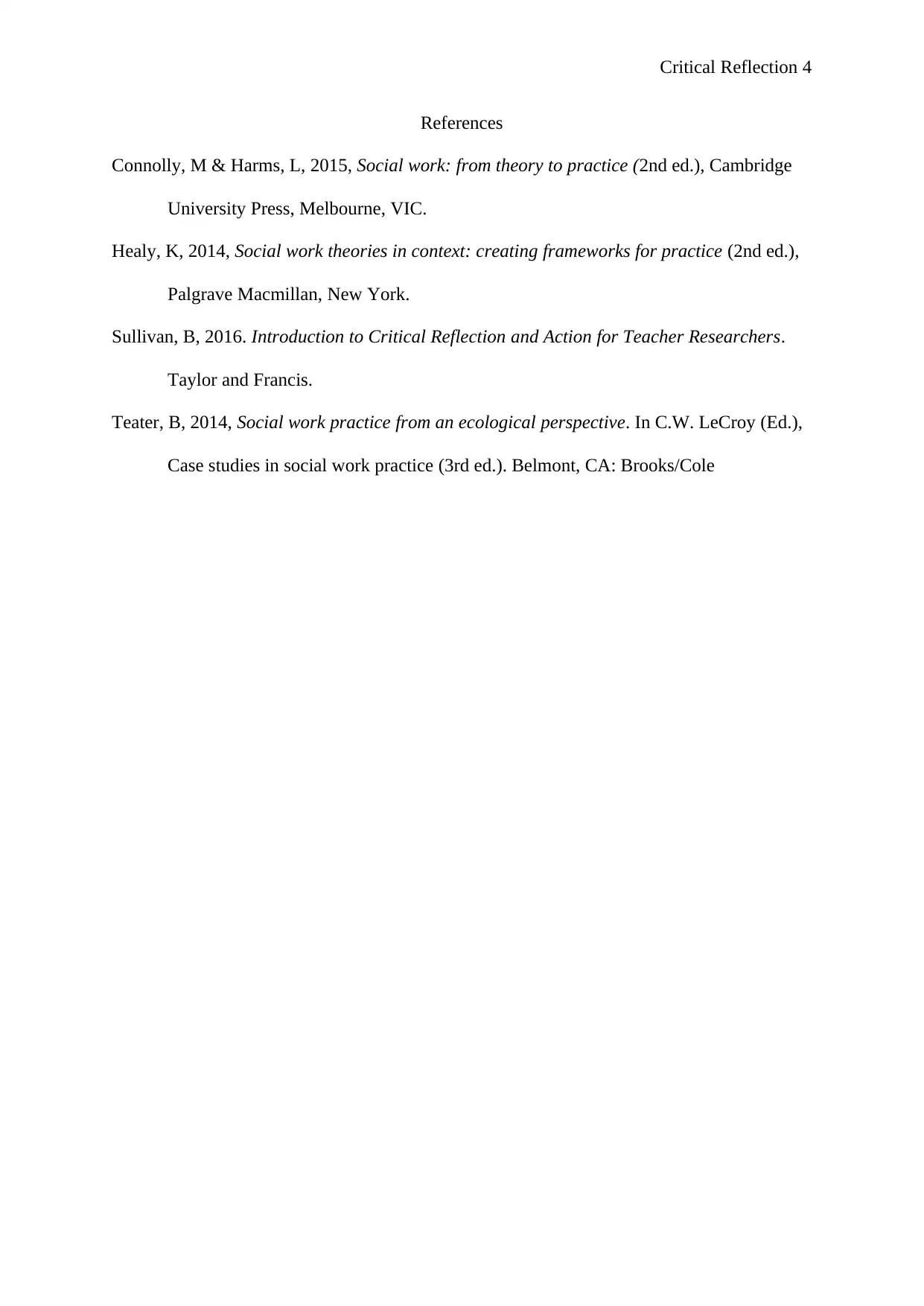Social Work Practice: A Critical Reflection on Theory and Application
VerifiedAdded on 2023/06/10
|4
|726
|354
Essay
AI Summary
This essay presents a critical reflection on the author's experience at Wesley Mission Australia, focusing on a research project related to Out of School Hour services (OOSH) in the Northwest Sydney growth area. The reflection emphasizes the importance of linking theory and practice in social work, particularly the application of systems and ecological theories. The author discusses how classroom lessons, especially those concerning practice frameworks, have guided their work. The essay highlights the collaborative nature of social work and the need to empower clients by viewing them as resources. The author reflects on how theoretical knowledge serves as an anchor for case evaluation, causal accounts, and outcome evaluation, ultimately improving the planning, understanding, and accountability of social work practice.
1 out of 4










![[object Object]](/_next/static/media/star-bottom.7253800d.svg)